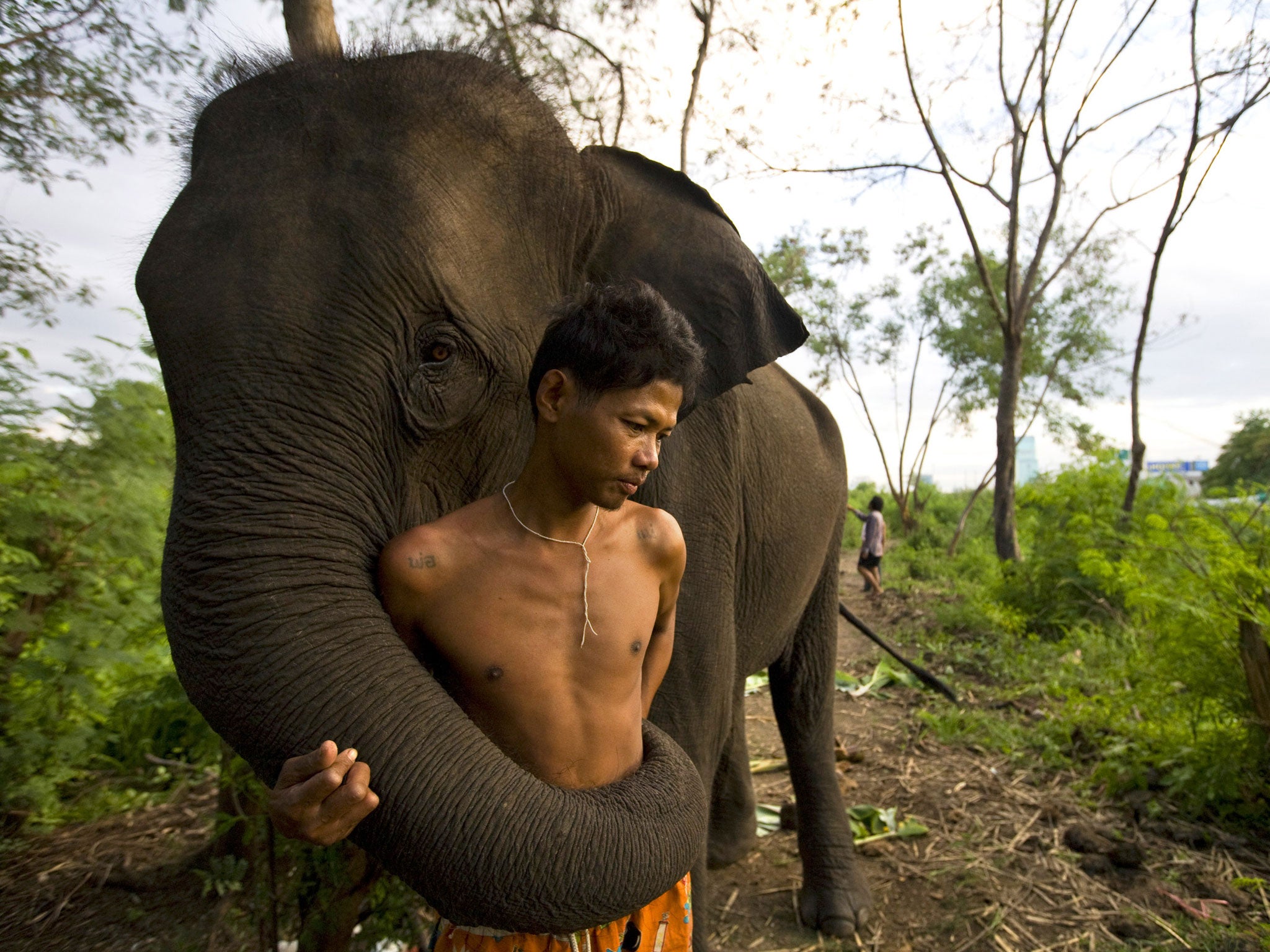Elephants can recognise the gender and ethnicity of human voices
The animals can even tell an adult from a child just by hearing their voice

Your support helps us to tell the story
From reproductive rights to climate change to Big Tech, The Independent is on the ground when the story is developing. Whether it's investigating the financials of Elon Musk's pro-Trump PAC or producing our latest documentary, 'The A Word', which shines a light on the American women fighting for reproductive rights, we know how important it is to parse out the facts from the messaging.
At such a critical moment in US history, we need reporters on the ground. Your donation allows us to keep sending journalists to speak to both sides of the story.
The Independent is trusted by Americans across the entire political spectrum. And unlike many other quality news outlets, we choose not to lock Americans out of our reporting and analysis with paywalls. We believe quality journalism should be available to everyone, paid for by those who can afford it.
Your support makes all the difference.Wild elephants can recognise the gender and ethnicity of a person just by listening to the sound of their voice, a new study has found.
A study conducted by researchers at the University of Sussex found the animals demonstrated more fear when they heard the voices of adult Masai men, compared to Kamba men.
Karen McComb, a professor of animal behaviour and cognition at the University of Sussex, and her colleagues at the University went to Amboseli National Park in Kenya, where hundreds of wild elephants live among humans.
"Basically they have developed this very rich knowledge of the humans that they share their habitat with," Prof McComb explained.
The scientists used voice recordings of Maasai men, who on occasion come into conflict with elephants, and Kamba men, who are less of a threat to the animals.
The recordings contained the same phrase in two different languages: "Look over there. A group of elephants is coming."
The elephants reacted more defensively by retreating and gathering in a bunch to the Maasai language recording because it was associated with the more threatening human tribe, according to the study co-author Graeme Shannon, of Colorado State University.
"They are making such a fine-level discrimination using human language skills," Mr Shannon said. "They're able to acquire quite detailed knowledge. The only way of doing this is with an exceptionally large brain."
They repeated the experiment with recordings of Maasai men and women. Since women rarely spear elephants, the animals reacted less to the women's voices. The same thing happened when they substituted their voices with the voices of young boys.
"Making this kind of fine distinctions in human voice patterns is quite remarkable," said Emory University animal cognition expert Frans de Waal, who was not part of the study.
The study was published on Monday in the Proceedings of the National Academy of Sciences.
Additional reporting by Associated Press
Subscribe to Independent Premium to bookmark this article
Want to bookmark your favourite articles and stories to read or reference later? Start your Independent Premium subscription today.
Join our commenting forum
Join thought-provoking conversations, follow other Independent readers and see their replies
Comments